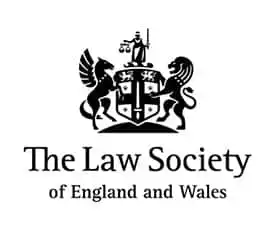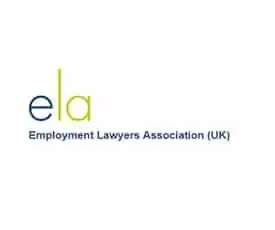
Victimisation at Work
We’re a team of calm, confident and cost-conscious employment lawyers. Call us today on 01793 296581
Talk to a lawyer todayVictimisation in the Workplace
What is victimisation? Victimisation in the workplace happens when you’re treated unfairly because you’ve asserted your legal rights. UK employment law protects you from this kind of behaviour. Some laws call it victimisation, others refer to it as penalisation, but either way, the protection is the same.
You’re protected if you:
- Make a complaint about discrimination
- Support a colleague with their complaint
- Ask for something you’re legally entitled to, like holiday pay or a contract
- Take time off for maternity or parental leave
- Report wrongdoing at work (whistleblowing)
Employers also cannot treat you unfairly simply because they think you might make a legal complaint. This includes issues related to:
- Disability
- Pregnancy or maternity
- Race or religion
- Sex or sexual orientation
If your employer takes negative action to stop you from making a claim, that’s unlawful victimisation. You don’t have to put up with it: you have the right to challenge the treatment and get legal support.

Workplace Victimisation
The Equality Act 2010 gives employees the legal right to be treated fairly at work. It protects them from workplace discrimination based on certain characteristics, including but not limited to the following:
Disability
- Gender reassignment
- Religion or belief
- Race
- Sex
- Sexual orientation
- Pregnancy and maternity.
If an employer treats someone unfairly because they’ve taken a protected action, like making a complaint or supporting a colleague, that’s classed as workplace victimisation. This is covered under the Equality Act 2010. In these cases, the employee may be entitled to compensation for the way they’ve been treated.
A protected act includes making a discrimination claim, giving evidence in someone else’s case or reporting a breach of the Equality Act 2010. If an employer treats someone unfairly for doing any of these, it is considered workplace victimisation and is against the law.
Victimisation Example:
A recent case involving a teacher who wasn’t given a private space to express breast milk. It highlights how failure to support protected rights at work can lead to a successful harassment claim. Read about the Mellor case and how it may affect you.
Victimisation at Work Reading
If you’re experiencing workplace victimisation, act quickly, as strict time limits apply. A claim must be filed with an employment tribunal within three months of the unfair treatment. To protect your rights, you should seek legal advice or consult a workplace victimisation lawyer as soon as possible. You could start the ACAS early conciliation process, which extends the deadline and allows more time to make a claim.
Constructive Unfair Dismissal
Victimisation doesn’t always involve discrimination or a protected characteristic. Sometimes, it simply means an employee is treated more unfairly than others, and that treatment causes them harm.
If the treatment is serious enough to make them feel they have no choice but to resign, they may be able to claim constructive unfair dismissal. However, this usually only applies if they’ve worked for the employer for more than two years.
Workplace victimisation can happen if an employee faces unfair treatment for several reasons. It could be a discrimination claim, the threat of a claim or being treated differently in a way that causes harm. If this happens, it is important to seek legal advice as soon as possible.
Employees are legally protected from victimisation at every stage of employment, from recruitment to dismissal, and even after their job ends.
Benefit From Employment Law Advice
The lawyers at DPH Legal have extensive experience in handling workplace discrimination claims. If you need advice, contact us today for expert support.
What Can We Help With?
- Settlement and compromise agreements
- Unfair dismissal advice
- Employment tribunal advice
- Discrimination claims
- Redundancy advice
- Breach of contract
- Advice on maternity and paternity leave
- Book A Free Consultation
- Understand Your Situation
- Know Where You Stand
Our 3 Step Process
Book A Free Consultation
This complimentary consultation allows our employment solicitors to understand more about your specific situation so we can provide you with the best advice possible.
We’ll lay out your options and will advise you upfront of any costs involved.
Our 3 Step Process
Understand Your Situation
Understanding your unique situation will help us to understand how we can help you move forward with more clarity.
Although everyone’s situation is unique, we’ve most likely dealt with similar scenarios before.
Our 3 Step Process
Know Where You Stand
Whether that’s pursuing unfair dismissal, negotiating a larger settlement agreement, starting a claim for discrimination or simply having peace of mind.
We’ll help you feel clearer and more settled.

0 / 127
5 star reviews

0 / 50
5 star reviews
Yell.com

0 / 231
5 star reviews
ReviewSolicitors
Client Feedback
We have formed many long-lasting relationships by listening to feedback and understanding our clients’ needs. Our employment law advice provides exceptional care and tailored support.
“DPH Legal has provided expert advice on all aspects of employment law. When advising us on any matters there was always a choice of action that could be taken and clear instruction on risks and options open to the company.”
Tracey Rees
“Outstanding I fully recommend DPH Legal to anyone who needs legal representation or advice for even the most contentious and upsetting disputes. David Harris and the whole team are second to none, and they give fact-based advice to get the best outcomes for the client.”
SilverPot63
“From beginning to end they were a pleasure to deal with. They were extremely efficient and the lawyers at DPH Legal were without doubt experts in their field. They conduct themselves with impeccable professionalism and remain in constant communication throughout.”
Behrooz Vahedifar
Award Winning Service
Our award-winning legal services are recognised for excellence, professionalism, and client success. We provide tailored strategies with a focus on precision, integrity, and results.
Contact a Lawyer Today
Davidson House,
Forbury Square,
Reading, Berkshire,
RG1 3EU
0118 914 5622
info@dphlegal.com









